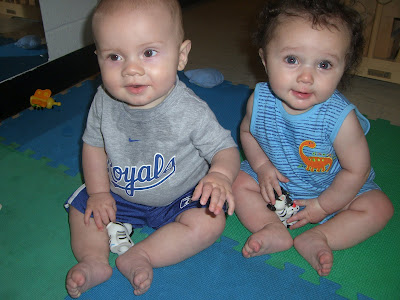Class is finally over. I took my final last Monday and I was pretty excited when I didn't have class this Monday! I have to say that Dr. Pasqualini did a great job of teaching this course. I went into the class caring nothing about Bio-Psych and every week she made it interesting and made real world applications about why it matters that we study Bio-Psych at all. I learned a lot and I even enjoyed learning it. Unfortunately, I bombed my final. I was so embarrassed to turn it in leaving some of the essays blank! I did pretty well on all of the other assignments so its doubtful that I did so bad as to bring me below a B in the course.
I'll share some of the interesting topics/stories we discussed.
The b
ook
Picking Cotton (a New York Times Bestseller) is about the true story of a girl named Jennifer who was raped and picked Ronald Cotton from a line-up as the her agressor. Based on her witness alone, he spends 7 years in prison before finally being released after DNA proved that he was not the man who had raped her. Both Jennifer and Cotton are now friends that tour together to speak at conferences about how memory works in the human mind and are advocates for research about working memory.
Jean Dominique-Bauby is a man who suffered a stroke and was left completely paralized except for the ability to wink with his left eye (with help, obviously). This man went on to write a book,
The Diving Bell and the Butterfly,that was made into a movie that won a Golden Globe and four Oscar Nominations. Due to the brain monitoring, the doctors were able to confirm that he was still alive and not a "vegatable", which allowed him to communicate with his friends and family.
As an assignment, we were to find a popular press article and do a critique after reading the real research to determine if the author was objective and accurate. I found an article from the
Washington Post about how childhood poverty affects the working memory of the children once they become adults. It's more than just that they have less opportunities to learn or have unavailable parents because they work two jobs, but due to the changes made by chronic stress in the brain, the children who grew up poor tested lower as adults in their working memory as those who grew up in middle class. The author deemed this important due to more families crossing into the poverty level with our current economy.
We talked about a man named
HM who lost his ability to make new memories after a surgery to remove his amygdala in 1953. He could tell you directions to the house he lived in at the time of the surgery, but could not name the street at which he had currently lived for 10 years. He just recently passed away. Another man,
Clive, once an accomplished musician, "wakes" up every moment to claim that now, for the first time ever, he is conscious and writes it in a journal. Moments later, he scratches out his previous writing and writes it again, only this is really the first time that he has been conscious and says that when he wrote it before, he must really have been uncounscoius. Clive lives one hundred percent in the moment and is completely unaware of his past yet he can still conduct music beautifully.
We studied about how the brain process pain and watched a documentary about a woman who fell off a cliff, shattering her leg, yet she managed to climb to help for two days never feeling pain. We watched a video about children who get an entire half of their brain removed and that they survive normally with the ability of language and thinking skills just like the rest of us. And we watched a video about people who feel pain in a limb that has been removed (referred to as a phantom limb) and why/how the brain can process the pain in a limb that is not there.
My intention was not to bore you, but to share just some of the modern day examples about why brain research and study is so relevant. Again, for me to be interested at all to even blog about this, is just a testament to the professor who worked hard at making the class enjoyable for a bunch of counseling psychology students with minimal interest in bio-psych at all.
 Going for a walk- Jackson was real concerned about missing
Going for a walk- Jackson was real concerned about missing


